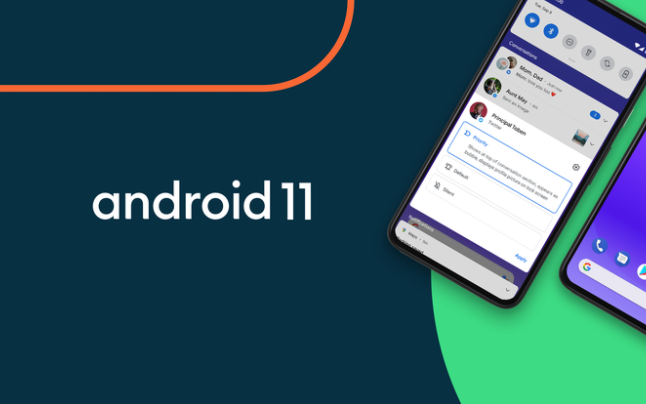 APPS
APPS
 APPS
APPS
 APPS
APPS
Google LLC today released Android 11, the latest release of its operating system, roughly on time despite earlier delays in its beta releases because of the COVID-19 pandemic.
The 11th incarnation of the Android operating system delivers a variety of new features, with a focus on making usability easier more than on new features. Pitched by Google as “turning it up,” the release is all about helping users to get to what’s important on their phones, with easier ways to manage conversations, connected devices, privacy and more.
Android 11 new features are led by “bubbles” that Google says make multitasking on a device “a breeze.” The bubble feature allows users to respond to important conversations without having to switch back and forth between what they are doing and a messaging app.
In a video from Google, Allen Huang, group product manager, Android explained that missing important messages is apparently a huge concern for Android users and that the bubble feature allows users to multitask and respond to messages without having to open a specific chat app.
In practice, it looks like Facebook Messenger but with multi-app support. Essentially Android 11 users will be able to message people across multiple apps from the same screen.
Under the heading “new ways to control your connected devices and media,” the new version of Android 11 offers the ability to access all smart devices in one place by simply long pressing the power button. “Control your connected devices like your thermostat or smart lock with a tap, so there’s no need to open multiple apps,” Google claims.
The presumption by Google that all Android devices have a dedicated power button is cute: Samsung Galaxy S20 devices, from the world’s largest Android device maker Samsung Electronics Co. Ltd., do not have a dedicated power button, with two buttons required to power off the device.
Media controls in Android 11 have been redesigned so users can now quickly switch the device that media is playing on. Android Auto has received an update with support for wireless functions, allowing users to switch more easily between their Android device and compatible vehicles.
On the privacy side, Google has provided a new range of features. Top of the list is onetime permissions that allow Android users to grant single-use access to sensitive permissions such as microphone, camera and locations.
One new feature is handy. In Android 11 permissions will be “auto-reset” for unused apps, with users notified accordingly. That means unused apps will no longer be able to spy on and suck data from devices they are installed on.
Android 11 is available immediately for selected Google Pixel devices. Officially Android 11 is also available for OnePlus 8, OnePlus 8 Pro, Xiaomi Mi 10, Xiaomi Mi 10 Pro, OPPO Find X2, OPPO Find X2 Pro, OPPO Ace2, OPPO Reno3 4G, OPPO Reno3 Pro 4G and the Realme X50 Pro.
But there’s a catch: It’s available only in beta as an option for users to test it.
Support our mission to keep content open and free by engaging with theCUBE community. Join theCUBE’s Alumni Trust Network, where technology leaders connect, share intelligence and create opportunities.
Founded by tech visionaries John Furrier and Dave Vellante, SiliconANGLE Media has built a dynamic ecosystem of industry-leading digital media brands that reach 15+ million elite tech professionals. Our new proprietary theCUBE AI Video Cloud is breaking ground in audience interaction, leveraging theCUBEai.com neural network to help technology companies make data-driven decisions and stay at the forefront of industry conversations.